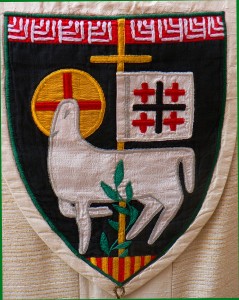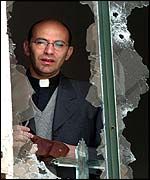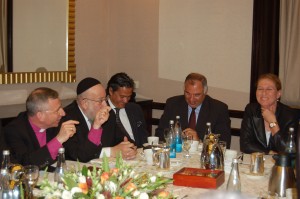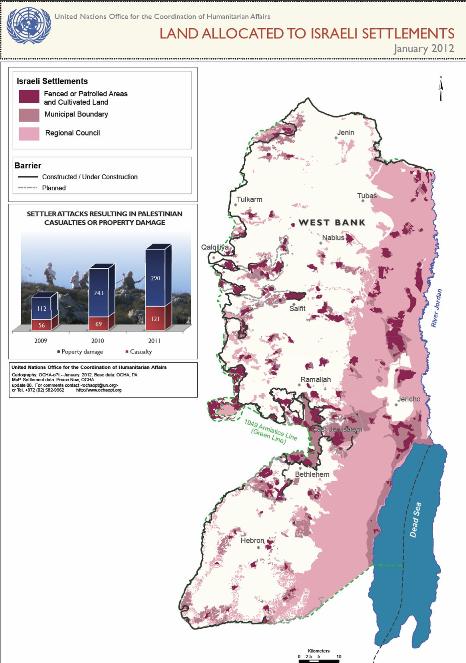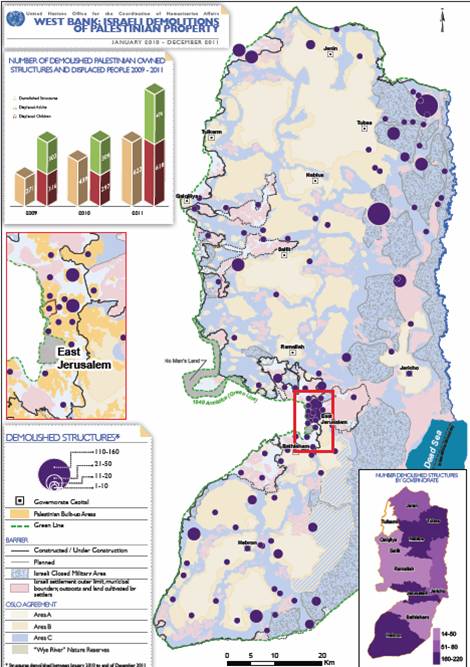Representatives of the Evangelical Lutheran Church in America (ELCA) and The Consulate General of Israel to the Midwest, both based here, met Feb. 29 to discuss one another’s understanding of the “Arab Spring” developments, especially concerns for minority religious groups in the Middle East, and the official Israeli-government position regarding the situation in Syria.
The request for the meeting came from Bahij Mansour, who directs the inter-religious affairs division of Israel’s Ministry of Foreign Affairs. Mansour is the former Israeli ambassador to Angola and will soon become ambassador to Nigeria.
They also discussed recognition of the Evangelical Lutheran Church in Jordan and the Holy Land (ELCJHL) and the issuance of permits for the Mt. of Olives Housing project, a key initiative by the Lutheran World Federation, the ELCJHL, the ELCA and other international partners to build 84 affordable housing units in East Jerusalem.
“The urgency of this meeting is that we believe that the government of Israel should give formal recognition to the ELCJHL” the Rev. Mark S. Hanson, ELCA presiding bishop, said in an interview. He said the recognition would be “a tangible sign of Israel’s concern for and commitment to religious minorities, because Christians are a numerical minority among Palestinian people.”
“I felt it was very important today to hold the government of Israel to the promise made to the Rev. Munib Younan, bishop of the Evangelical Lutheran Church in Jordan and the Holy Land, and to me when I served as president of The Lutheran World Federation. That recognition has not happened and is of deep concern,” said Hanson.
Mansour responded that he was supportive of the request for recognition, but that complex relationships within the present coalition government of Israel were delaying the request.
Hanson also cited that the Israeli government has yet to grant necessary permits to support the Mount of Olives Housing Project — an effort to build affordable homes on Lutheran World Federation-owned property on the Mount of Olives. Homes would be leased to Palestinian families and individuals, many of them Christians, which would enable them to maintain their Jerusalem residency and keep the right to work, live and move freely within the city. Hanson said the granting of the housing permits can “become a concrete sign that even seemingly small steps can contribute towards a movement for peace.”

